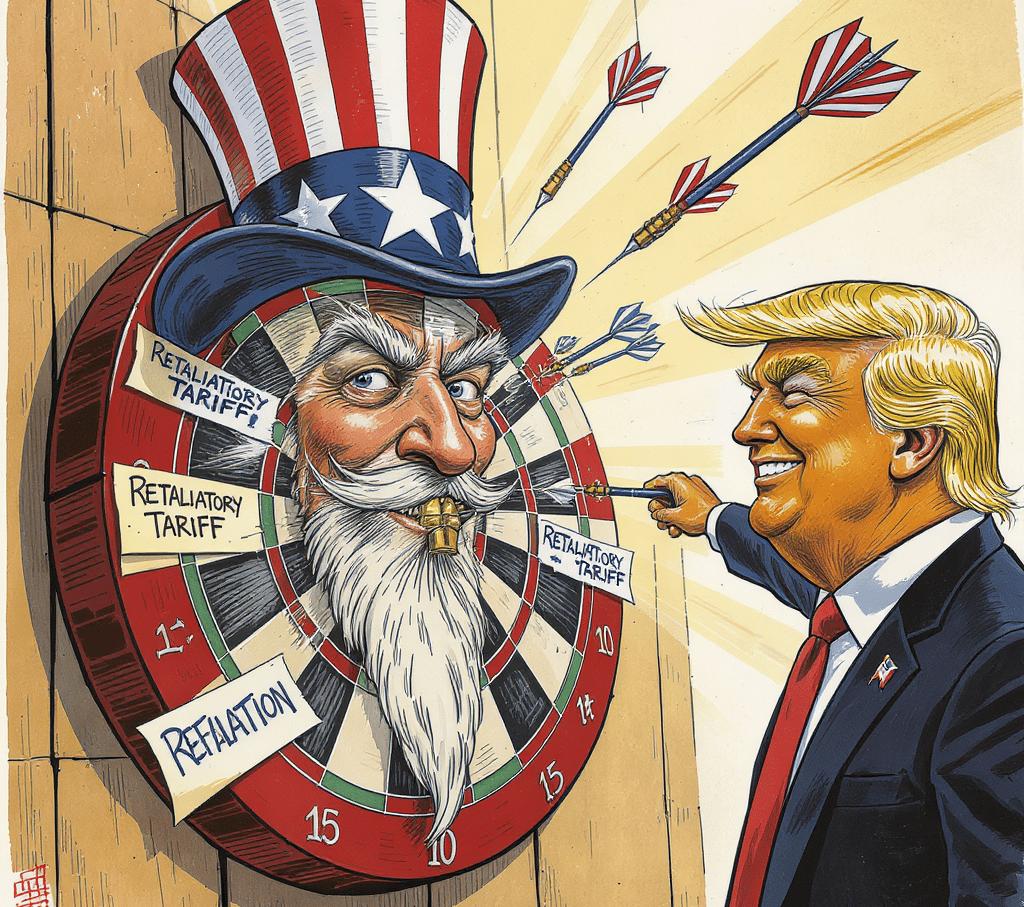Trump’s Tariff War: Punishing the World or America?
Donald Trump’s July 2025 tariff move is shaking global trade—and hitting American consumers hardest. This article breaks down how Trump's economic war on BRICS nations like India and Brazil may backfire, fueling inflation, damaging U.S. manufacturing dreams, and exposing the hypocrisy of Western trade policy.
Athish Ravikanth
7/11/20252 min read


On July 9, 2025, former U.S. President Donald Trump announced new import tariffs on several countries, including India, Brazil, and other BRICS nations. He even warned of an additional 10% tariff specifically targeting BRICS.
Trump calls it a move to “protect American jobs” and “revive U.S. manufacturing.”
But in reality, it’s just another round of economic bullying that will hurt global trade—and ordinary American citizens the most.
🔥 Tariffs Are Not Strength — They Are Economic Suicide
Let’s break it down simply:
When the U.S. adds import duty, cost of imported goods goes up.
This cost is passed to American consumers and small businesses.
From groceries to electronics, prices rise.
The middle class in the U.S. pays more for the same products.
So, who is really punished by these tariffs?
Not India. Not Brazil. It’s the U.S. consumer.
🧨 Trump’s Policy: Fear, Not Strategy
Trump wants to make the world fear U.S. economic power — using:
Tariffs
Dollar dominance
SWIFT system bans
Trade threats
This is not just a trade decision — it’s part of a long pattern where tariffs, sanctions, and financial restrictions are used as modern weapons to maintain Western dominance in a changing global order.
But this isn't the Cold War era anymore. Global trade has changed.
Instead of gaining power, these tactics are damaging America’s image and pushing the world toward alternative trade systems like BRICS Pay, currency swaps, and regional trade alliances.
🇮🇳 🇧🇷 India and Brazil Fight Back
Both India and Brazil have announced retaliatory tariffs on U.S. goods.
And many more countries are watching — ready to join this growing resistance.
The U.S. cannot dictate trade anymore. If American goods become too expensive, the world will look for alternative partners.
🏭 What About U.S. Manufacturing? Can Tariffs Bring It Back?
Trump claims tariffs will push companies to “make in America.”
Sounds great in a speech — but in reality, it’s mostly impractical.
Here’s why:
🧑🏭 U.S. labor is expensive compared to countries like India or Vietnam. Manufacturers can’t match global prices.
🏭 The industrial workforce has declined. The U.S. moved to a service-based economy long ago.
🌍 Supply chains are global. American products rely on imported parts. Tariffs raise their cost too.
🤖 Even if factories return, they’ll be automated. That means fewer jobs, not more.
✅ A few industries like steel, defense equipment, or basic machinery may gain in the short term.
But mass manufacturing is not coming back the way Trump wants people to believe.
🎭 SWIFT, Dollar, Tariffs – The Hypocrisy of the West
While preaching free trade and democracy, the U.S. uses:
Tariffs as punishment
Dollar dominance to manipulate markets
Sanctions and payment bans as weapons
The world is noticing this double standard. Countries are moving toward self-reliance, alternative currencies, and regional trade deals.
This is not just a trade shift.
It’s a global power shift.
🧨 The Real Looser? The United States.
By acting like the world police, the U.S. is:
Losing friends
Losing markets
And losing the trust of the global trade community
If this continues:
U.S. companies will face more retaliation
U.S. consumers will pay more
And the U.S. itself will become less relevant in the future trade world
✅ The Era of Bullying Is Over
Donald Trump’s tariff war may win short-term applause, but it causes long-term damage — not just globally, but inside the United States.
The world today is built on collaboration, not control.
And if the U.S. keeps pushing away partners like India and Brazil, it will be left behind.
Trade must be based on trust, not threats.
And global leadership must come from cooperation, not coercion.
#TrumpTariffWar , #GlobalTradeCrisis , #USvsBRICS , #TradeWar2025 , #TariffBacklash , #InflationInAmerica , #TrumpTradePolicy , #EconomicNationalism , #ManufacturingMyth , #GlobalSupplyShift , #BRICSRetaliation , #AmericaFirstFlaws , #BrokenGlobalTrade , #TradeSanctions , #PostDollarWorld
TRAVEL & TRADE
Bangalore, India